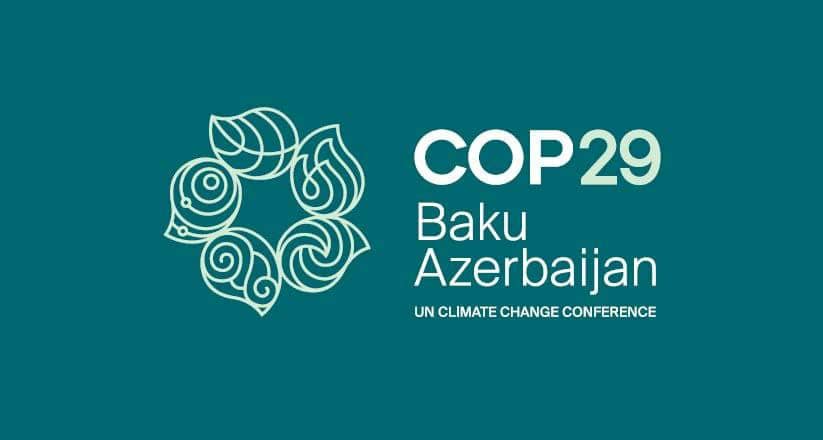In just 33 years since restoring its independence from the Soviet Union, Azerbaijan has embarked on a remarkable transformation journey. Against all odds, the nation has risen from the brink of collapse to become a prosperous example of resilience and determination.
The resurgence of Azerbaijan began on June 15, 1993, when the esteemed leader, Heydar Aliyev, was called upon by the Azerbaijani people to guide them through challenging times toward a brighter future.
This date, celebrated as National Salvation Day, holds great significance in the nation’s calendar. Prior to June 15 and immediately after gaining independence in October 1991, Azerbaijan faced a multitude of crises, including governmental chaos, social upheaval, increased military desertion, and occupation of its territories by neighbouring Armenia’s armed forces. Civil war seemed imminent.
However, the National Leader, who came with the people’s insistence, prevented civil war, overcame economic turmoil, and transformed Azerbaijan into a self-sufficient state within a decade. This was achieved through prioritized efforts such as implementing economic reforms, transitioning to a market economy, fostering economic development, integrating into the global economy, implementing privatization programs, and enacting agrarian reforms.
The foundation laid by the National Leader proved resilient, even after his passing, enabling the country to continue thriving. Under the leadership of President Ilham Aliyev, Azerbaijan restored its territorial integrity and sovereignty over its entire territory, surpassed some European nations in terms of citizens’ quality of life, and became a donor country in just less than three decades since independence.
The Caucasus country positioned itself as a favoured international partner, recognized for achievements in various sectors such as infrastructure development, technology, and education.
While Azerbaijan has actively engaged in humanitarian efforts for communities, including in Africa, recent developments have prompted a shift towards a more strategic partnership with the continent.
Africa, with its dynamic economies and significant growth, presents vast opportunities for collaboration. Azerbaijan acknowledges Africa’s potential and is committed to playing a greater role in fostering positive development on the continent.
According to Ambassador of Azerbaijan to Ethiopia, Ruslan R. Nasibov, the country aims to establish mutually beneficial partnerships at bilateral and multilateral levels, that contribute to the prosperity of both regions.
Comprehensive engagement is crucial for successful collaboration. The country is actively working to strengthen cooperation among public, private, and civil society entities across Africa. Azerbaijan seeks to create an environment that goes beyond mere rhetoric and leads to tangible outcomes, embodying shared goals and aspirations.
Effectively portraying the available cooperation opportunities is essential in attracting the interest and involvement of relevant actors. Azerbaijan and Africa can collaborate in various areas, including energy, agriculture, healthcare, education, and technology, leveraging their diverse landscapes and potential.
The recent visit of Deputy Prime Minister Temesgen Tiruneh from Ethiopia to Azerbaijan exemplifies Azerbaijan’s commitment to deepening relations with African states and contributing to this cooperation. During the visit, significant discussions took place, resulting in the signing of a crucial memorandum of understanding aimed at enhancing the efficiency and accountability of the public service sector while also paving the way for additional collaborative efforts. These concrete actions demonstrate Azerbaijan’s willingness to share expertise and resources for the benefit of African nations.
The progress made by Azerbaijan and African countries, particularly Ethiopia, reflects a shared commitment to building a stronger partnership based on mutual benefits and common objectives. Azerbaijan recognizes Africa’s growing economies and the potential for collaboration across various sectors. Azerbaijan aims to nurture sustainable political and economic partnerships that contribute to positive development in Africa by fostering cooperation among public, private, and civil society entities.
 Azerbaijan has become a valued international partner through its rapid development and dedication to win-win cooperation. As it expands its horizons, Azerbaijan aims to be a reliable ally for African states, offering expertise, resources, and a commitment to building a brighter future. By deepening its collaboration with Africa, Azerbaijan embarks on a journey of shared progress and prosperity, demonstrating its dedication to making a meaningful impact on the continent. With concrete actions and strategic engagements, Azerbaijan is poised to become a reliable and esteemed partner for African states on a global scale.
Azerbaijan has become a valued international partner through its rapid development and dedication to win-win cooperation. As it expands its horizons, Azerbaijan aims to be a reliable ally for African states, offering expertise, resources, and a commitment to building a brighter future. By deepening its collaboration with Africa, Azerbaijan embarks on a journey of shared progress and prosperity, demonstrating its dedication to making a meaningful impact on the continent. With concrete actions and strategic engagements, Azerbaijan is poised to become a reliable and esteemed partner for African states on a global scale.
As a token of that global trust, Azerbaijan has also been chosen as a host of the next 29th Session of the United Nations Conference on Climate Change (COP29), which is going to be held in November this year. The country is dedicated to further promoting global solidarity, unity and inclusivity in addressing the challenges of climate change, connecting North, South, East and West and mobilizing the international community to make progress on halting global warming and deliver inclusive outcomes of COP29.
Azerbaijan has made green growth one of its key development priorities. The president declared 2024 a “Year of Solidarity for a Green World.” Nowadays, it is also a regional leader in green energy transition and is developing smart cities and villages.
Azerbaijan is contributing to the realization of shared goals and a prosperous future for all.










